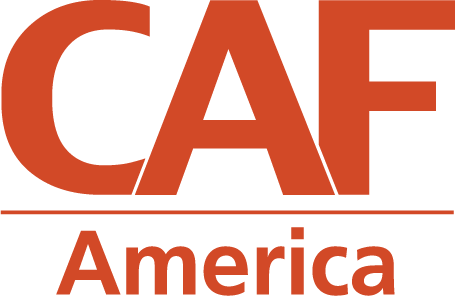In 2005, philanthropic contributions by individuals reached an all-time high, accounting for 2.4% of disposable income. In the subsequent decade we have seen that number fluctuate due mostly to economic hardship and general financial volatility worldwide. Despite facing many of the same issues that can negatively affect American non-profit organizations, however, foreign charitable organizations have enjoyed a rapid increase in giving over the last decade. According to Dr. Una Osili, Director of Research at the Center on Philanthropy at Indiana University, American contributions abroad have grown steadily thanks to technological advancements that have led to a more comprehensive awareness of international charitable causes.[1]
For any foreign charitable organization looking to benefit from this positive trend, the first step in attracting greater support from American individuals and corporations should be providing donors with the same tax benefits offered by domestic charities. In this article we will explore two of the options available to foreign charities when seeking to provide such tax benefits to their donors, comparing the costs associated with filing for recognition as a tax exempt 501(c)(3) corporation to the alternative of setting up a Friends Fund with CAF America.
Procedure for 501(c)(3) Exemption
For a foreign charitable organization, one surefire way to ensure that American donors enjoy tax deductions for their gifts is to register with the Internal Revenue Service (IRS) as a tax exempt 501(c)(3) corporation. Many foreign charities attain this goal by incorporating a “Friends of” organization in the United States. “Friends of” charities are required by U.S. law to operate independently of the foreign organizations they support, and therefore must meet the lofty standards of the Internal Revenue Code in order to enjoy not-for-profit status. Section 501(c)(3) of the Internal Revenue Code (hereinafter, “the Code”) states that in order to qualify for tax exemption, an organization must be a corporation, trust, or association of the following type: charitable, educational, religious, scientific, literary, fostering national or international sports competition, preventing cruelty to children or animals, and testing for public safety.[2] Even if your organization falls into one of those categories, however, the process of obtaining a 501(c)(3) tax exemption can be a long and tedious one. Let’s go through it together.
Prior to beginning the application process for tax exempt status, your foreign organization must first register its presence in a U.S. jurisdiction. Incorporation is slightly different in each state, but generally requires a legal business name, filing financial documents with the state’s corporate filing office, and creating by-laws that provide guidelines as to how your organization will be run and managed. The cost of filing “Articles of Incorporation,” as these documents are called, varies from state to state, but is usually about $100. As part of this filing, you will need to name a board of directors, whose job it will be to put the by-laws into motion.
After incorporating and determining that your organization serves the proper purpose according to the Code, the next step entails filing and submitting Form 1023 – the application for tax exempt status. In order to file Form 1023, your organization must first obtain an Employer Identification Number, or EIN. This number registers your organization with the IRS and acts as your account number in all future filings and transactions. This number is provided by the IRS once you have filed form SS-4. The SS-4 form, found here, asks an organization to provide general information about conception, construction, and purpose. With the EIN in hand, we can return to Form 1023. This form asks for elaboration on the information provided in SS-4. It is beyond the scope of this article to provide a step-by-step tutorial on how to fill out Form 1023, but we can take a look at several sections that present the largest obstacles to foreign charitable organizations:
- Section IV: Mission narrative – past/present activities and future goals
- Section VIII: Specific activities – i.e. what you do, how you fundraise, and where you operate
- Section XI: User fees[3]
Section IV of Form 1023 is your organization’s opportunity to provide a narrative to the IRS. Since this section will attempt to describe the who, what, when, where, and how of your mission, it is paramount to “present your case” as to why your organization should enjoy tax exempt status. Good will and favorable press are not enough. The strength of the application will rest upon your ability to argue your organization’s eligibility based on the previous rulings of the IRS. For a foreign organization, this will often require enlisting the services of an American tax attorney familiar with the IRC and IRS precedent. Section IV has the ability to make or break the entire application; therefore outside expertise will almost certainly be necessary and is likely to come at a significant cost.
Section VIII, while not possessing the same gravity as Section IV, can also present obstacles to foreign organizations. Section VIII, specifically line 12a, asks whether your organization operates outside the U.S. and if funds will be distributed outside the U.S. Over the last decade, the IRS has become increasingly selective in regard to allowing 501(c)(3) corporations to send money abroad, so your specific answer to this question could also be a strong determining factor in your application status. For that reason, Section VIII may also require retaining the services of a U.S. tax attorney.
Finally, Section IX lists the application fees. Currently, an organization that reports more than $10,000 annually in revenue pays $850 to file Form 1023.
The CAF America Friends Fund
The CAF America Friends Fund provides foreign charitable organizations with a simpler, more cost-effective alternative to incorporating as a 501(c)(3) when seeking to ensure tax deductions for donors. The process of incorporation is daunting and can often present significant financial barriers to foreign charities, as we discussed above. By establishing a Friends Fund, an eligible organization frees itself from the rigors and carrying costs of American incorporation, while still being able to enjoy broad U.S. fundraising appeal and the ability to offer tax deductions for donations of any size.
The benefits associated with the Friends Fund are twofold. The first tangible benefit conferred by the Friends Fund is that of time. Participation in the Fund relieves your organization of the burdens of incorporating domestically, building a board, filing Form 1023, and supplying the accompanying supplemental documentation. The finely tailored consultation of CAF America’s industry professionals puts 20 years of expertise in working with foreign charities at your organization’s fingertips. Additionally, the Fund does not require that your organization form and sustain a board of directors and staff in the U.S. in order to qualify. Contrast this with 501(c)(3) incorporation, which requires drafting articles of incorporation, by-laws, and building a board even before applying for tax exempt status. The Fund offers the ability to bypass the months of planning prior to filing, and alleviates the stress of waiting an additional period of time (up to several months) before receiving word on your exemption status from the IRS. By removing government registration, tax, and audit requirements, the Friends Fund allows your organization to focus on fundraising efforts rather than compliance while still broadening your appeal to American philanthropists.
A second benefit of the CAF America Friends Fund, when compared to 501(c)(3) incorporation, is that of associated cost. The Fund’s one time setup fee of $1,000 and no minimum balance requirement allows your organization to begin receiving tax deductible gifts from American donors as soon as membership is approved. As discussed above, the initial cost of incorporation simply begins with roughly $1,000 in filing fees, not to mention the legal fees you may need to incur to navigate the intricacies of the IRC and the cost of setting up a standalone “Friends of” board. Additionally, the cost of maintaining a board in order to continue enjoying tax exempt status as a 501(c)(3) can dwarf the annual administrative fee associated with the Friends Fund. An annual administrative fee of $2,500 entitles your organization to unlimited tax-deductible donations, in addition to access to the expertise and advice of the CAF America professional staff. Further information regarding the establishment of a CAF America Friends Fund, and other benefits it bestows, may be found here.
To summarize, if your organization is looking to build or expand its appeal amongst American donors, the CAF America Friends Fund provides a less complicated and less costly alternative to obtaining 501(c)(3) tax exempt status. The Fund provides foreign charitable organizations with the opportunity to solicit tax deductible donations on an ascertainable fee schedule, removing from play the fears of mounting attorney fees or application rejection that come along with 501(c)(3) filings.
—
[1] http://www.philanthropy.iupui.edu/news/article/has-americas-charitable-giving-climbed-out-of-its-great-recession-fueled-trough
[2] http://www.irs.gov/pub/irs-pdf/p4220.pdf
[3] http://www.irs.gov/pub/irs-pdf/i1023.pdf

